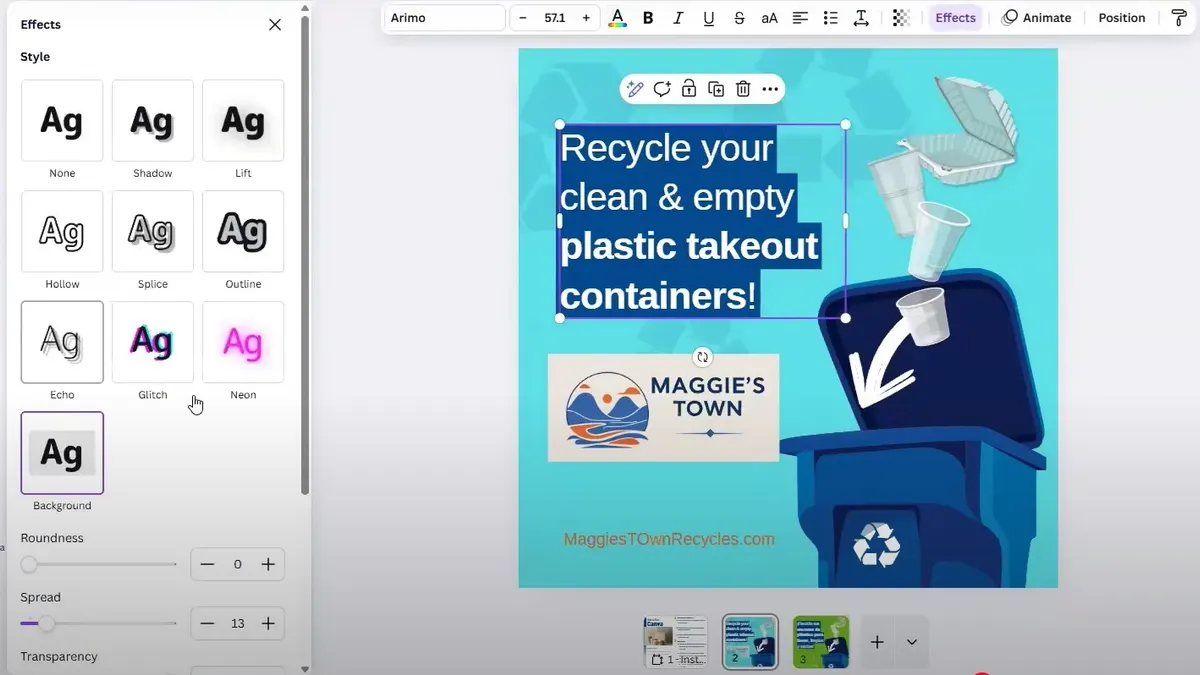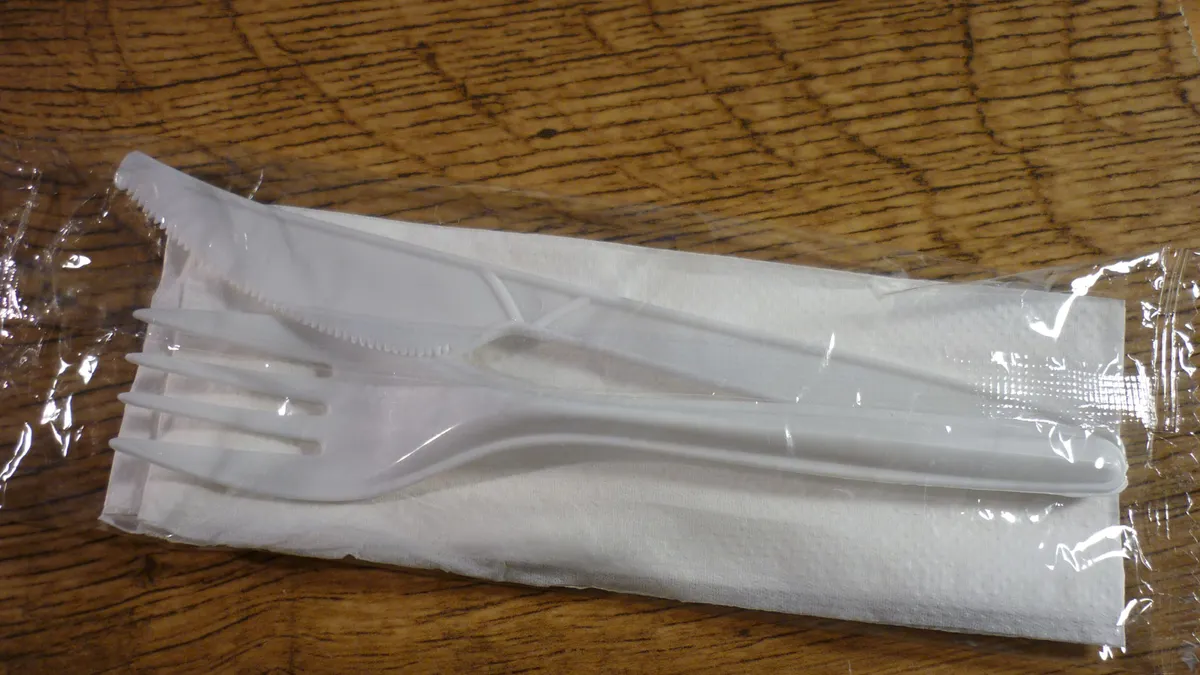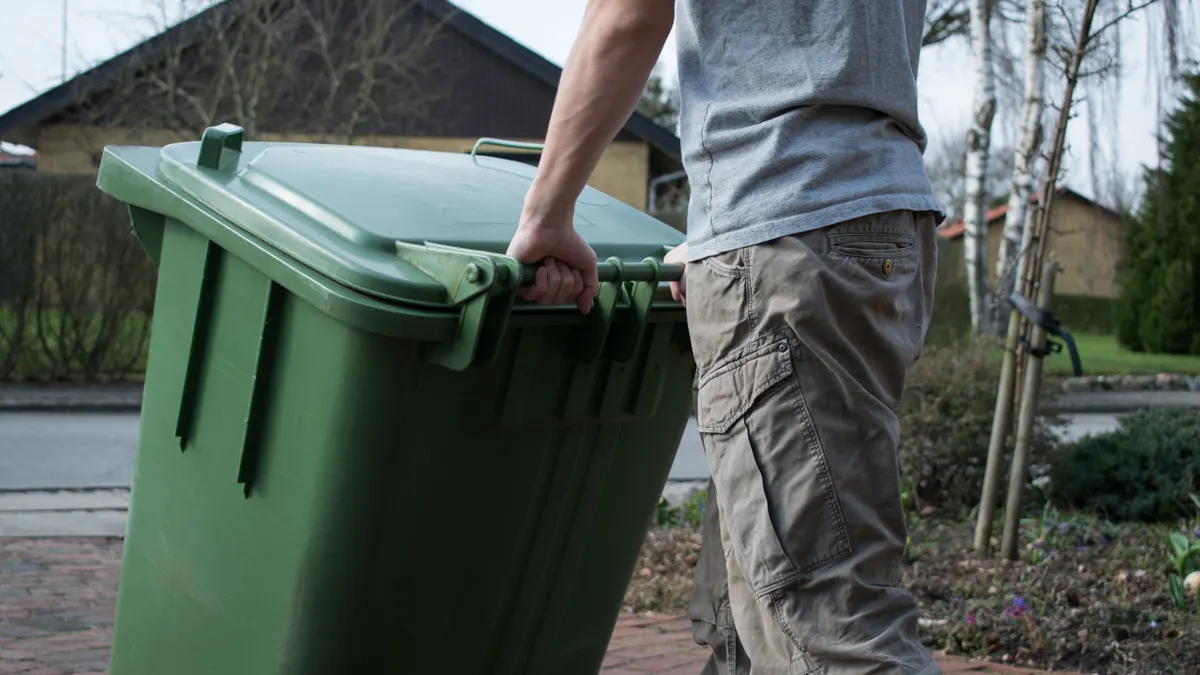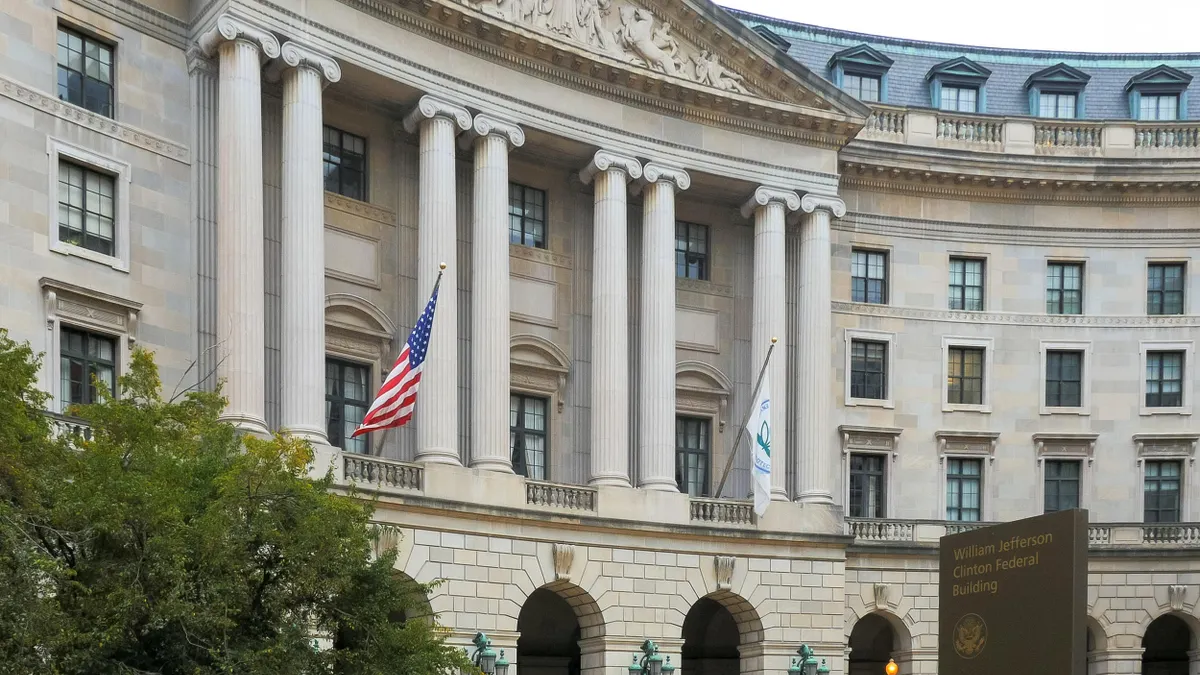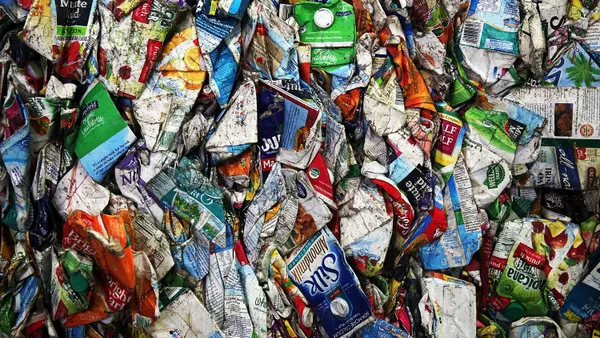Public education about how to correctly recycle packaging items is difficult and requires time and repetition, especially when a community adds new items to its list of accepted materials. This week, the Foodservice Packaging Institute launched updates to a tool that eases the stress of creating educational campaigns.
“We still have people two or three years after the fact holding on to some other piece of information that they heard 10 years ago, and you have to constantly correct it,” said Patrick Leahy, CEO at Omaha, Nebraska-based First Star Recycling, during a webinar FPI hosted last week that focused on expanding community recycling access and participation.
Athens, Georgia, initiated an educational campaign in 2020 to inform residents about changes to its recycling system, especially the addition of paper cups as a material accepted in the curbside program. The municipality wanted to connect with its nearby mill, Pratt Industries’ in Conyers, Georgia, before promoting that residents could recycle the items. FPI and recycling consultancy RRS helped to make the connection, and Pratt verified the mill would take the cups.
Athens officials launched the educational campaign after running tests to ensure the paper cups properly flowed through the mill. The campaign rolled out in early 2021. Since that time, “we have noticed that we still have to have the education out there,” said Denise Young, waste reduction coordinator at Athens-Clarke County Solid Waste Department, during the webinar.
Leahy and Young emphasized the need for ongoing public education work to improve recycling participation. They also cited FPI’s assistance and toolkit as a way for communities of all sizes to easily launch such campaigns.
Partnering to cut confusion
Resident confusion about recycling and the need for ongoing education isn’t isolated; it’s nearly universal across the United States, sources say.
“One of the biggest frustrations is just confusion on recycling — you know, what's acceptable on my list,” said Brent Bell, vice president of recycling at WM, during an August interview. Plastics often top the list, “and rightfully so,” he said, citing the wide variety of plastic resins used in packaging and variations in which items each municipality accepts. But overall, “we have realized that if we can make recycling simple, we'll get a higher recycling rate from our consumers,” he said.
In November 2024, Rumpke Waste & Recycling added PET thermoforms to the list of materials it accepts in select markets, thanks to newly upgraded equipment at its MRF in Columbus, Ohio. Previously, in 2022, the recycler began accepting single-use plastic, aluminum and paper cups. In 2021, it began accepting polypropylene tubs.
MRF operators report doing a lot of leg work on the front end when exploring new packaging commodities to add. “I have to be 100% confident that my end user network is not going to go away,” said Jeff Snyder, Rumpke senior vice president of recycling and sustainability, during an August interview. After adding a commodity, “I cannot take things away. That's a bad thing. I've not done that since I've been at Rumpke, and I will 100% make it my effort that that will not happen.”
Removing items from residential streams further confuses the public about which items can or can’t be recycled, he explained. MRFs should work with other stakeholders, including municipalities, to ensure residents receive clear messaging about recycling, especially for newly accepted items, sources said.
“You don't want to add commodities too quickly, because you have municipalities and solid waste districts and all those things that also have to get on board with you. Sometimes, they are your voice” to the public, Snyder said. “They have to kind of work in tandem with us to have that communication go to the public in such a way that it doesn't overwhelm the public, and it doesn’t become confusing for them.”
Webinar speakers echoed the importance of ensuring buy-in from stakeholders across the value chain.
“Before we ever partner with the community to add something new — whether again, it's paper cups, plastic containers, pizza boxes or other food service packaging — we take a very careful step-by-step approach,” said Maggie Orozco, a consultant at RRS, during the webinar. “We don't really move forward until the entire supply chain has given us that green light. So that means the mills, MRFs, haulers and the community itself are all aligned.”
An enhanced tool
This week, FPI is launching its enhanced resident education kit to help recyclers and municipalities create locally customized educational campaigns.
It features new templates, graphics and communication resources in addition to its previously available downloadable image galleries and explanation of messaging best practices. Some templates are for letters to city council members while others are for website banners or social media posts. Users can tailor aspects such as the language, font and colors to align with the community’s branding.
“You don't need graphic designer experience, and you don't need to purchase any software. It's super easy,” said Orozco. “Whether you're just planning a one-week push or a year-long campaign, you can definitely use these to start strong and sustain momentum.”
First Star’s Leahy pointed to the value in FPI’s tool for helping businesses with limited in-house marketing resources and allowing partners to tailor the campaigns, rather than just offering a one-size-fits-all solution, “given we service different communities who handle the recyclables in different ways.”
This story appeared in the Waste Dive: Recycling newsletter. Sign up for the weekly emails here.



